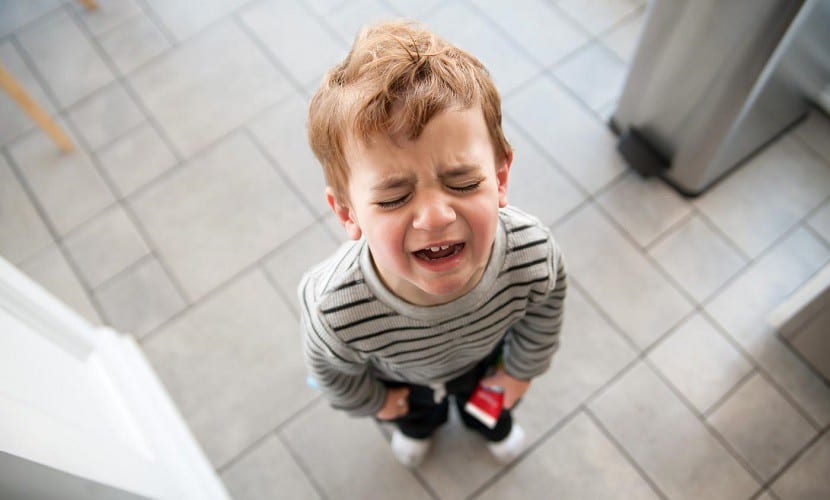
All children, like all human beings, get angry. When we feel threatened, we move in fight, flight or we remain immobile. Anger is our body's 'fight' response. But human beings not only get angry in response to external threats, we also get angry in response to our own feelings. So when our own fear, pain, disappointment, or other feelings are too upsetting, we attack ourselves and maintain the feeling of pain. This happens to a child when he is in anger.
When people have feelings that bother us, we mobilize against the perceived threat and attack. This also happens to children. Children do not have a fully developed frontal cortex to help them self-regulate, and they are more likely to become even more angry and aggressive when angry.
Sometimes this feeling that prompts us to attack makes sense, but only when it is actually a threat, although this is rare in reality. When most children get angry, they want to attack their brother -because he has broken something-, their parents -because they have been 'unfair' with him-, their teacher -because he embarrassed him in front of everyone-, the bully of the patio -because it scares him-, etc. When children live in a home where anger is managed in a healthy way, they usually learn to control anger constructively.
Control anger constructively
To control anger constructively, there are some important points to keep in mind:
Controlling aggressive impulses
By the time children are in daycare, they should be able to tolerate the adrenaline rush and other brain chemicals that put them in a 'fighting' situation but without having to act or attack another partner. By accepting children's anger and staying calm, establishing appropriate pathways in order to learn the necessary emotional skills, children will learn to calm down without doing / hurting themselves. But Remember that children are impulsive because they are not fully developed and it is normal that sometimes they do not regulate themselves well.

Recognize threatening feelings
Once the child can stop feeling emotional pain for whatever reason, that is when the feelings can be worked on and they will begin to heal. It is almost like magic when children understand that they do not need anger to defend themselves against the most vulnerable feelings, and that anger will simply evaporate forever.
On the other hand, if we do not help children to work on those emotions and they do not feel safe enough to feel them, then they will end up losing their temper, because they will have no other way to cope with internal turbulence.
Constructive solutions
Over time, the goal is for the child to use anger as an impulse to change things if necessary so that the situation does not repeat itself. This may include some solutions such as asking parents for help in times of conflict. It can also include acknowledging your own contribution to the problem, so that you can solve the problem by following your parents' advice and be more prepared next time.
With your help, your child will learn to calm down when he is angry so that he can express his needs and desires without having to attack another person, either physically or verbally. He will learn to look empathetic to the needs of others and to seek win-win solutions, rather than assuming that he is right and the other person is wrong.
Obviously, it takes years of parental guidance, a lot of patience, and perseverance for children to learn these skills. If parents are able to help children feel safe to express their anger and explore inner feelings, they will be able to handle their anger constructively in problem solving during the elementary school years and throughout the elementary school years. rest of his anger.

How Parents Can Help Children Manage Their Anger
Start for you
If you are one of the people who yell at children, you should know that you are modeling a behavior in your child that he will copy in the future. It can be difficult to stop screaming suddenly, especially if you have the habit, but it is essential that you do it right now. If you yell or misbehave, you can't wait for your child to learn to control himself too. Your child learns by watching how you handle disagreements and conflicts in your daily life.
Work calm
It is necessary that you work calm in your life, especially when you are angry, this way you will help your children feel safe and help them to develop the necessary neural pathways in their brain to turn off the 'fight or flight' and allow the cortex frontal can begin to work with reasoning. This is how children learn to calm down: watching yourself calm down first. They will learn from your self-regulation of anger and how you handle other disturbing feelings, they will see that they are not as scary as they seem.
All feelings are allowed
Only actions should be limited, but feelings will always be allowed. When emotions or feelings are not under conscious control they need guidance to be. If you allow children to feel their emotions, they will be able to accept them instead of trying to suppress them. This will give you enough cognitive control over feelings so that you can begin to put feelings into words. instead of putting them into stocks.

Don't send a child to calm himself
When a child is angry or upset, your goal as a parent is to help restore a sense of security, which requires you to feel calm. Remember that children need the most love when they 'deserve it least'. Instead of a 'time out' alone, your children will need to feel that they are not alone, instead of feeling that loneliness when they most need company. You will be surprised how your child will begin to show more control when you are by his side, because he will feel important and accompanied.
What an important role we mothers and fathers have in controlling children's anger, right? It's amazing but our self-control really serves them a lot, and free emotional expression is truly therapeutic.
A greeting.
Hello, I have a 6-year-old child for months, nor has a child been behaving very stubborn, he does not pay attention to what I send him. And now he has learned to lie what should I do. Thanks